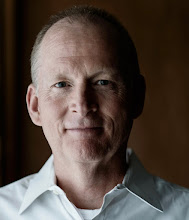 Several months ago I read an intriguing book titled, "The Unlikely Disciple: A Sinner’s Semester at America’s Holiest University" by Kevin Roose. Roose was a freshman at Brown University who transferred to Liberty University for a semester to "observe evangelical Christians." It was a fascinating read.
Several months ago I read an intriguing book titled, "The Unlikely Disciple: A Sinner’s Semester at America’s Holiest University" by Kevin Roose. Roose was a freshman at Brown University who transferred to Liberty University for a semester to "observe evangelical Christians." It was a fascinating read.After reading "The Unlikely Disciple," I came across a book by Jim Henderson called "Evangelism Without Additives: What if Sharing Your Faith Meant Just Being Yourself?" Henderson uses a phrase in his book that stuck with me, especially after reading Kevin Roose’s book. Henderson said that what Christians need to become better at is "non-manipulative intentionality." What a great phrase!
I'm thinking what Henderson meant could be summed up in how we would answer this question if asked by a friend: "If I don’t become a Christian, can we still be friends?"
To some degree, I think Christians, me included, have loved our doctrine more than we have loved people. Non-manipulative intentionality requires us to love people, and not think of them or ourselves as failures if they don't become Christians.
It doesn't mean we stop praying. It doesn't mean we water down our beliefs.
It does mean we love them by intentionally being their friend, first and foremost.
How have you answered a question like this with your friends who aren't Christians? And how can we become better at non-manipulative intentionality?

